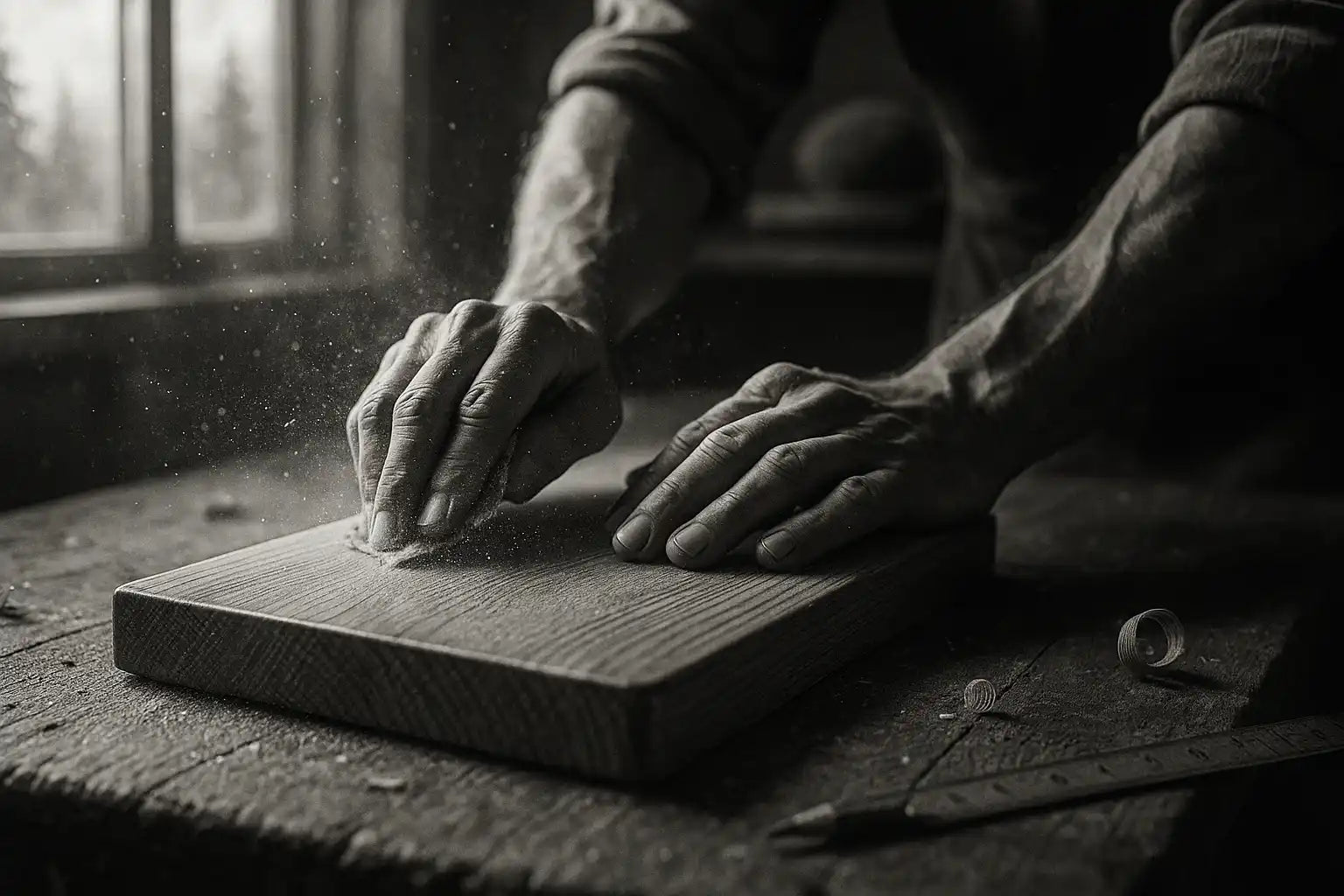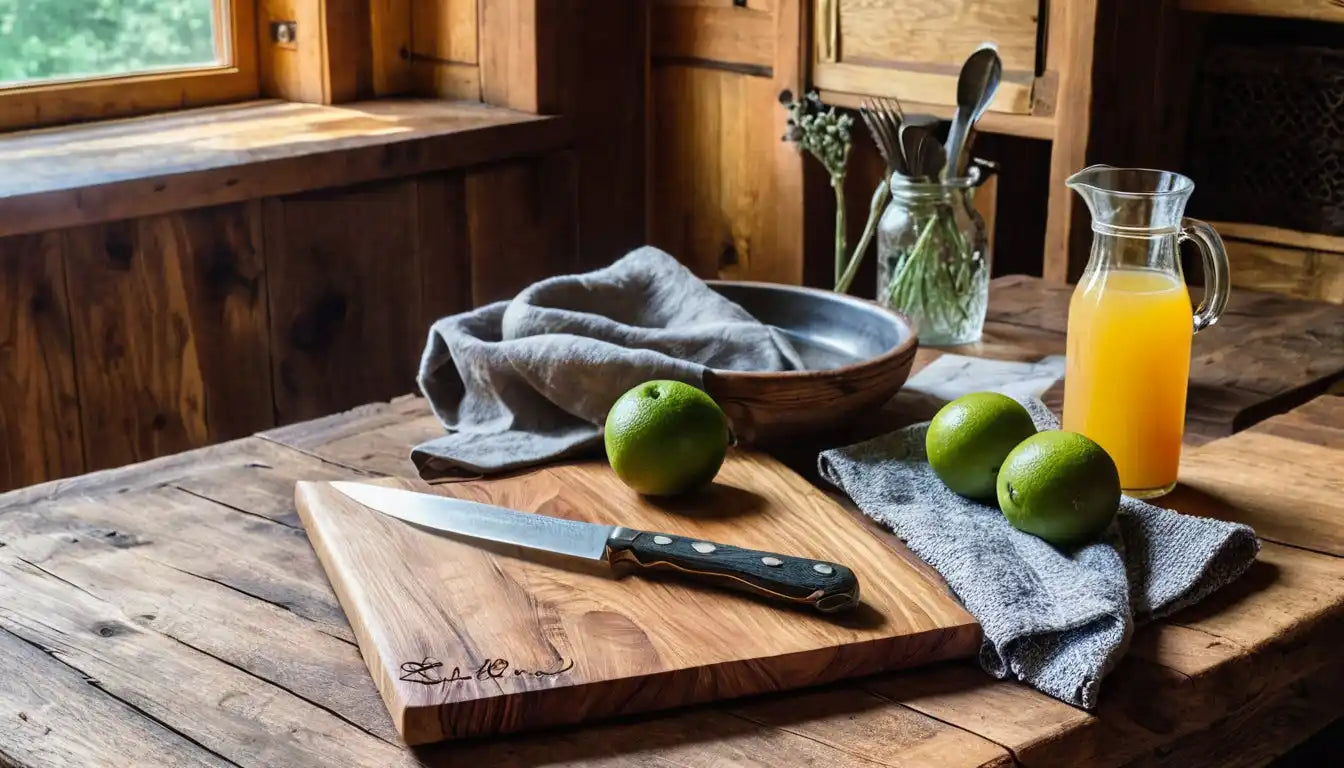Damascus knives are precise tools—and small works of art. Three simple steps keep the blade sharp, rust-free, and beautiful: Clean gently , dry thoroughly and apply a very thin layer of grease .
Cleaning – immediate & gentle
- Immediately after cutting: Rinse with warm water and a little mild detergent.
- Hand wash only: Avoid dishwasher (heat, salt, chemicals attack steel and handle).
- Gentle tools: Microfiber or cotton cloth; no scouring pads, no steel wool.
Tip: If residue sticks to the blade, it is better to soak it briefly in warm water rather than scrubbing hard.
Dry thoroughly
- Dry the blade and back immediately after washing – including the transition to the handle.
- Do not leave water drops standing: they encourage stains or rust.
- Also wipe wooden handles dry; re-oil occasionally if necessary.
Apply a layer of grease – protection against rust and patina
A very thin layer of oil or wax protects the blade from moisture and preserves the pattern. Camellia oil or a neutral, food-safe blade oil have proven effective.
- Apply 1-2 drops of oil to the area with a dry, lint-free cloth.
- Spread evenly and very thinly on both sides of the blade.
- Remove excess, let the knife air out briefly, then store it away.
Rhythm: If used frequently, oil once a week; if used infrequently, oil after each use.
Avoid typical care mistakes
- ❌ Leave knives in the sink – standing moisture = risk of rust.
- ❌ Clean with the rough side of the sponge – micro-scratches promote corrosion.
- ❌ Use olive and aromatic oils – they can become rancid and smell.
- ❌ Cutting on hard surfaces (glass/stone) – it damages the blade and requires more frequent sharpening.
Secure storage
Ideal options: a magnetic strip (minimizes blade contact), a knife block (protects the edge), or a knife bag (for transport). Don't store blades loose in the drawer.
FAQ: Frequently Asked Questions
Is my Damascus knife rustproof?
Many Damascus blades are corrosion-resistant , but not completely rust-proof. Maintenance (drying and oiling) remains important.
Which oil is suitable?
Camellia oil or special, food-safe blade oil. Apply a thin layer and remove excess.
Do I have to see the fat layer?
No. An invisibly thin layer is sufficient – protection yes, "film" no.






















